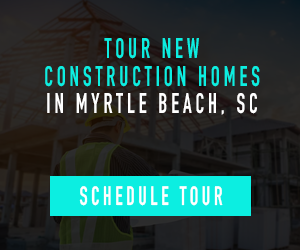
Nearly 30% of U.S. homeowners would consider tapping their home equity via products like a home equity line of credit (HELOC) due to ongoing concerns about the economic climate, stemming from a rise in volatility and uncertainty over the past three years.
This comes from survey data collected by MeridianLink, a software vendor for the financial services and consumer reporting industries.
The survey consisted of 1,500 homeowners and offers “a comparative view of how homeowner sentiment has shifted over time,” the company explained. For example, in 2022, 21% of respondents expressed willingness to tap home equity, which could indicate a growing acceptance for the practice today.
Still, the rise in the potential use of home equity lending comes with caveats. Among the homeowners who described themselves as hesitant to tap their equity, 54% of them cited “affordability” of the practice as a chief concern.
This was outpaced by high interest rates (63%), risking their homeownership status (22%) and uncertainty about terms of repayment (18%).
“Homeowners recognize the potential of home equity lending, but many are still on the sidelines due to financial uncertainty and lack of education about their options,” JP Kelly, senior vice president of mortgage at MeridianLink, said in a prepared statement.
Kelly also spoke about this topic on a recent episode of the HousingWire Daily podcast.
“This presents an opportunity for financial institutions to bridge the gap by simplifying the lending application process, improving education on home equity products and offering more competitive, flexible options,” he said.
Interestingly, a top motivator for engaging with home equity lending is home improvement. Among self-labeled likely borrowers, this was a key reason listed by 45% of such respondents. Investing in new properties and debt consolidation followed at 16% each.
A lender’s reputation was also listed as a key factor in the decision-making process, the survey found.
“While interest rates remain important, 43% of homeowners cited trust and reputation as key factors in choosing a lender,” MeridianLink explained. “Borrowers are looking for institutions that not only offer competitive rates but also provide a seamless, transparent, and reliable lending experience.”
These issues reflect the priorities and practices of other areas of the home equity lending ecosystem — including home equity investment (HEI) products and reverse mortgages.
Reverse mortgages have reckoned with reputational concerns for years among potential borrowers. But despite significant investments in education and marketing materials, they have yet to break out from the generally low mortgage market penetration rate they have long maintained. New efforts hope to challenge this dynamic.
Consumer understanding of reverse mortgages has improved, but broader knowledge of home equity lending also shows signs of improvement, according to the survey.
In 2022, only 43% of respondents described themselves as having a “strong” understanding of home equity lending, but that figure grew to 53% in the 2025 iteration of the survey.
Nearly one-quarter of respondents, however, say they have “an incomplete understanding of these products, indicative of the need for continued education,” MeridianLink explained.
“The findings highlight the critical role financial institutions can play in demystifying home equity borrowing and removing barriers to access,” the summary stated. “Through digital lending innovations, enhanced educational resources, and a focus on borrower-friendly experiences, lenders can look to drive higher engagement and adoption of home equity products.”
First Time Home Buyer FAQs - Via HousingWire.com




